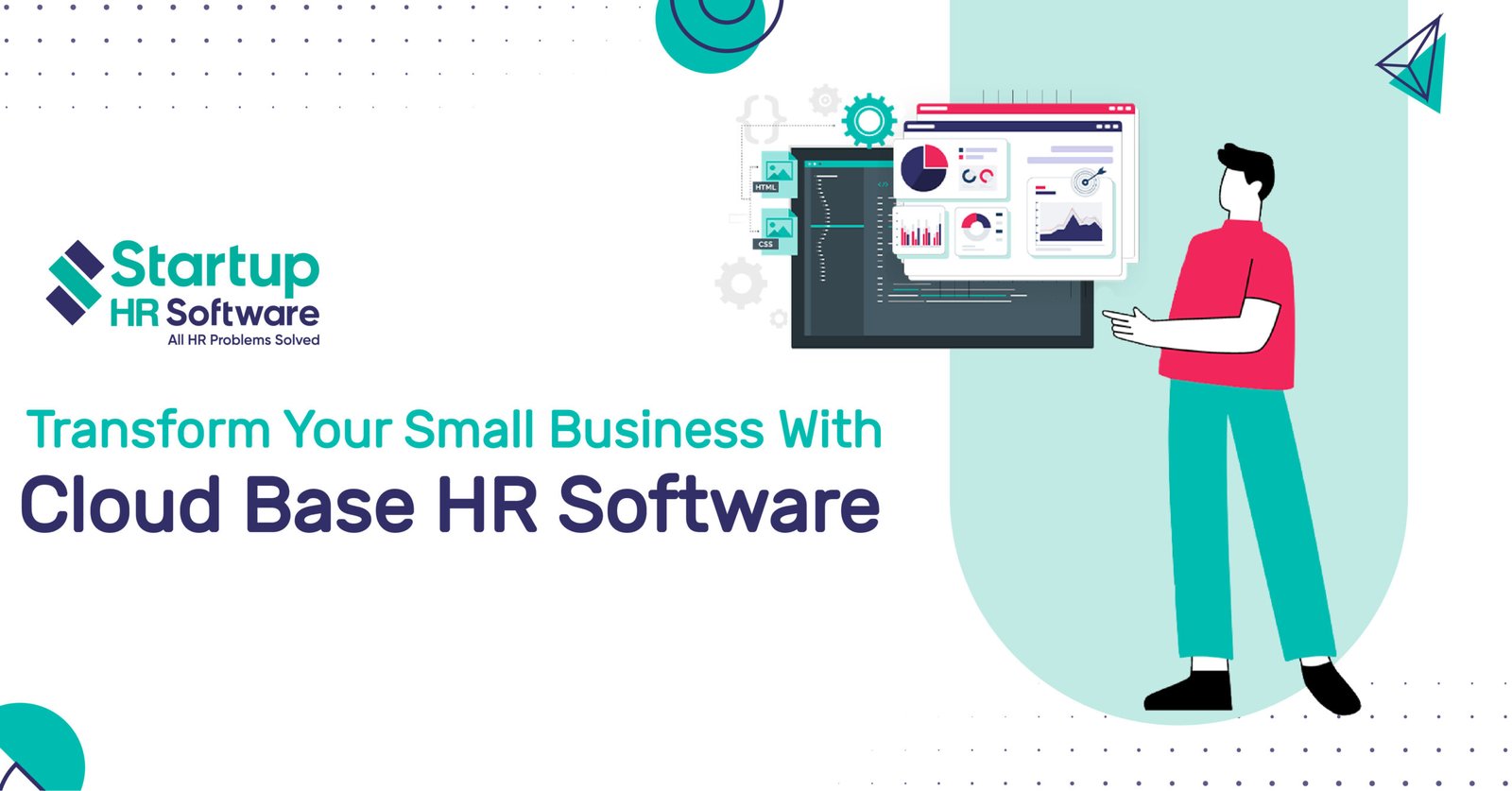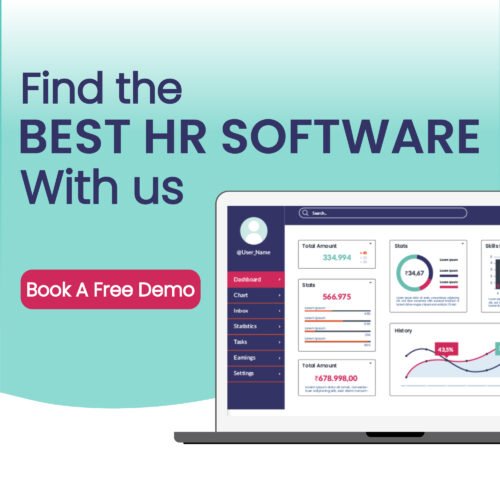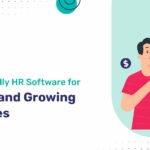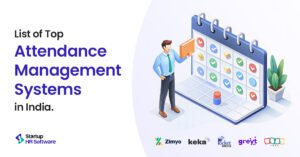
13 Cloud-based HR Software Solutions for Small Businesses
In today’s fast-moving business environment, small businesses need efficient and cost-effective solutions to manage their human resources (HR) processes. However, with limited resources and budget constraints, traditional HR practices may not be feasible for small businesses. That’s where cloud-based HR software solutions come into play. Cloud-based HR Software Solutions for small businesses an affordable and scalable way to streamline their HR processes, improve productivity, and comply with legal requirements. This blog will explore the benefits, Features, Factors, and the List of Cloud Base HR Software.
Why Cloud-based HR Software is Ideal for Small Businesses
Small businesses many times face unique challenges when it comes to HR management. They may not have a dedicated HR department or HR personnel, and multiple employees may handle HR tasks.
Managing HR process manually, including keeping track of employee information, handling payroll, and ensuring compliance with labor laws, can be prone to errors and take up a lot of time.
Cloud-based HR software solutions specifically aim to address these challenges and provide small businesses with an efficient and automated way to manage their HR processes.
One of the prime benefits of cloud-based HR software is that it is done on the cloud, which means you can access content or services from any device or location at any time.
It allows small businesses to centralize their HR processes. In addition, it provides employees with self-service portals to access their HR information and perform HR-related tasks, such as submitting time-off requests, updating personal information, and viewing pay stubs. That saves time, empowers employees, and frees HR personnel to focus on more strategic tasks.
Benefits of Cloud-based HR Software for Small Businesses
1. Cost-effective
Cloud-based HR software eliminates the need for expensive hardware and software installations, which can significantly burden small businesses. With cloud-based HR software, small businesses can pay for only the needed features and scale up or down as their HR requirements change. It makes cloud-based HR software a cost-effective solution for small businesses with limited budgets.
2. Time-saving
Manual HR processes can be time-consuming and prone to errors. Cloud-based HR software automates HR processes such as employee onboarding, time and attendance tracking, payroll processing, and benefits administration, saving time and lowering the risk of errors. It allows small businesses to streamline their HR processes and focus on more strategic tasks.
3. Accessibility
Cloud-based HR software is accessible; you can use it from any place, at any time, and on any internet-enabled device. It allows small businesses to manage their HR processes on the go and provides employees with self-service portals to access their HR information and perform HR-related tasks. As a result, it grows employee engagement and satisfaction.
4. Compliance
Compliance with labor laws and regulations is important for small businesses to avoid legal risks and penalties. Cloud-based HR software helps small businesses stay compliant by utilizing automated systems; tasks such as time and attendance tracking, leave management, and payroll processing can be streamlined and made more efficient. It reduces the risk of compliance errors and ensures that small businesses follow legal requirements.
5. Employee self-service
Cloud-based HR software provides employees with self-service portals to access their HR information and perform HR-related tasks, such as submitting time-off requests, updating personal information, and viewing pay
Features of Cloud-based HR Software
1. Employee Data Management
Centralize and manage employee data, including personal information, employment history, performance records, and benefits details, in a secure cloud-based database.
2. Payroll Processing
Automate payroll calculations, tax withholding, and direct deposit payments to employees, ensuring accurate and timely payroll processing.
3. Time and Attendance Tracking
Track employee work hours, manage time off requests, and generate reports for attendance and leave management, reducing manual tracking and administrative overhead.
4. Benefits Administration
Streamline benefits enrollment, manage employee benefits plans, and provide self-service portals for employees to access and update their benefits information.
5. Compliance Management
Ensure compliance with labor laws, tax regulations, and benefits requirements by automating compliance checks and generating reports to support audits.
6. Employee Self-Service
Empower employees with self-service portals to the way in and update their personal information, view pay stubs, request time off, and enroll in benefits, reducing HR administrative workload.
7. Reporting and Analytics
Generate reports and analytics on HR metrics, such as turnover rate, time and attendance data, and benefits utilization, to gain insights for informed decision-making.
8. Mobile Access
Provide mobile apps or responsive web interfaces for employees and HR administrators to access HR information and perform HR tasks on the go.
9. Integration with Other Systems
Integrate with other business systems, such as accounting, timekeeping, and benefits providers, for seamless data flow and process automation.
Factors to Consider when Choosing Cloud-based HR Software
Here are some elements to review when evaluating and selecting cloud-based HR software for your small business:
1. Pricing
Understand the pricing model of the HR software, including subscription fees, additional costs for add-on features, and any hidden charges. Consider the overall cost-effectiveness of the software, keeping in mind your budget and the value it brings to your HR processes.
2. Scalability
Assess the HR software’s scalability to accommodate your small business’s current and future needs. Consider elements such as the number of employees you have now and anticipate having in the future, as well as the flexibility of the software to adapt to changing HR requirements.
3. Ease of Use
Evaluate the user-friendliness of the HR software, considering the ease of setup, configuration, and day-to-day use. Look for software with an instinctive user interface, easy navigation, and comprehensive documentation or support resources.
4. Features and Functionality
Consider the features and functionality of the HR software concerning your specific HR needs. Identify the must-have features that align with your HR processes, such as payroll processing, employee data management, time and attendance tracking, etc. Look for additional features that offer value-add benefits, such as reporting and analytics, mobile access, and amalgamation with other systems.
5. Customer Support
Evaluate the level of customer support offered by the HR software provider. Look for providers that offer prompt and reliable support channels, like phone, email, or chat, and have a reputation for great customer service. Consider the availability of training resources, documentation, and online communities for ongoing support.
6. Data Security
Ensure the HR software provider has strong data security measures to protect your sensitive HR data. Look for features such as data encryption, regular data backups, and access controls to prevent unauthorized access. Consider the provider’s track record in data security and compliance with industry grades and regulations, such as GDPR and HIPAA.
7. Integration Capabilities
Assess the integration capabilities of the HR software with other business systems that you currently use or plan to make use of in the future. Look for software that seamlessly integrates with accounting, timekeeping, benefits providers, or other relevant systems to streamline data flow and avoid duplicate data entry.
Here is a List of Cloud Base HR Software
1. KekaHR
KekaHR is a comprehensive HR management software that simplifies and automates HR processes for businesses. It offers features such as payroll management, leave and attendance tracking, performance management, and employee self-service. With its user-friendly interface and robust functionality, KekaHR empowers HR teams to streamline operations and enhance employee engagement.
2. 247 HRM
247 HRM is a versatile HR management software created to meet the needs of small to mid-sized businesses. It provides a range of HR solutions, including employee data management, payroll processing, leave and attendance tracking, and performance evaluation. With its intuitive interface and customizable features, 247 HRM helps organizations efficiently manage their HR processes and drive employee productivity.
3. UBS App
The UBS App is a user-friendly mobile application that brings HR management to the fingertips of employees. It offers convenient features such as access to payslips, leave requests, and employee information. The UBS App ensures seamless communication between employees and HR departments, enabling quick and easy access to HR-related services and information.
4. Teamnest
Teamnest is a cloud-based HR management platform that provides an extensive suite of tools for businesses of all sizes. It has features such as applicant tracking, onboarding, time and attendance management, and performance evaluation. With its intuitive interface and advanced features, Teamnest simplifies HR processes, improves collaboration, and helps organizations build high-performing teams.
5. greytHR
greytHR is a powerful cloud-based HR and payroll management software made for small and medium-sized businesses. It offers various features, including employee data management, attendance tracking, leave management, and payroll processing. With its user-friendly interface and robust functionality, greytHR streamlines HR processes, ensures accurate payroll processing, and enhances compliance with labor laws.
Conclusion
Implementing cloud-based HR software for small businesses can revolutionize HR management by streamlining processes, enhancing efficiency, and improving employee engagement. With features such as payroll software, leave and attendance tracking, performance evaluation, and employee self-service, HR software provides a comprehensive solution for businesses of all sizes. It eliminates manual paperwork, ensures compliance, and offers real-time data and insights for informed decision-making.
To experience the full capabilities of HR software, it is recommended to request an HR software demo, which allows businesses to explore the features and functionalities firsthand and make an informed decision based on their specific needs and requirements.







